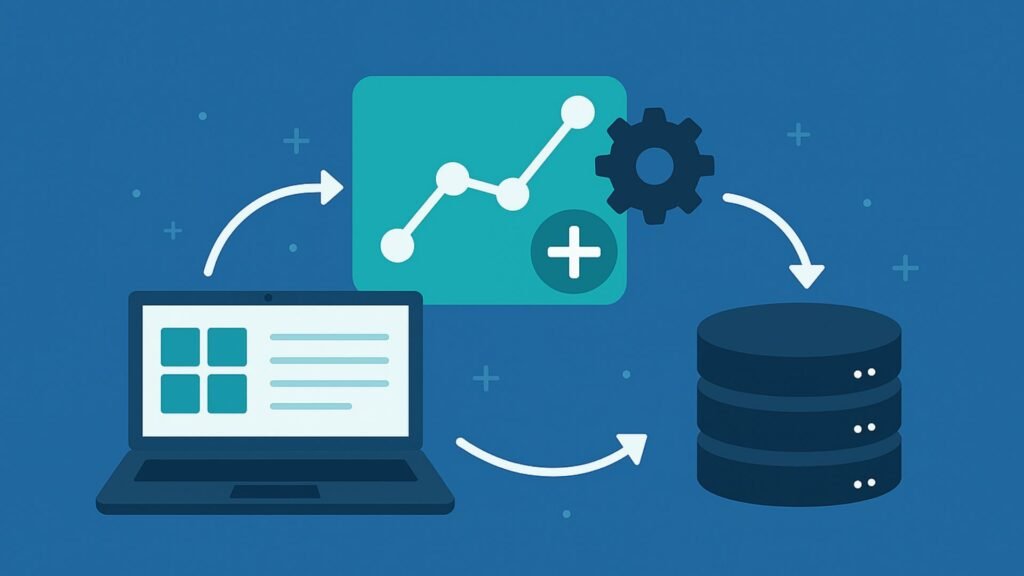Retail Analytics with LS Central: Turning Data into Decisions
In today’s hyper-competitive retail environment, data is no longer just a by product of transactions—it is a strategic asset. Retailers that can capture, analyze, and act on data in real time gain a decisive edge in customer experience, inventory optimization, pricing strategy, and profitability. This is where Retail Analytics with LS Central, powered by Microsoft Dynamics 365 Business Central, plays a transformative role. LS Central combines Point of Sale (POS), ERP, inventory, customer management, and analytics into a single, unified platform. When deployed by an experienced Microsoft Dynamics 365 partner in Texas, USA, LS Central enables retailers to turn raw data into actionable insights that drive smarter decisions and sustainable growth. This article explores how LS Central empowers retailers with advanced analytics, the role of Microsoft Dynamics 365 Business Central, and why partnering with the right Dynamics experts in Texas is critical for success. Understanding Retail Analytics in the Modern Retail Landscape Retail analytics refers to the process of collecting, analyzing, and interpreting data from multiple retail touchpoints—stores, POS systems, eCommerce platforms, supply chains, and customer interactions. The goal is simple: make better decisions faster. Traditional retail systems often operate in silos. Sales data lives in one system, inventory in another, and customer data in a third. This fragmentation leads to delayed insights, manual reporting, and reactive decision-making. With LS Central integrated into Microsoft Dynamics 365 Business Central, retailers gain a single source of truth. Every transaction, return, stock movement, and customer interaction is captured in real time—creating a powerful analytics foundation. What Is LS Central and Why It Matters for Retail Analytics LS Central is an industry-specific retail solution built on Microsoft Dynamics 365 Business Central. It is designed for retailers, restaurants, and hospitality businesses that need end-to-end operational visibility. Core Capabilities of LS Central Because LS Central runs natively on Business Central, analytics are not bolted on—they are embedded into daily operations. Retailers can analyze data at store level, regional level, or enterprise level without complex integrations. For organizations working with a trusted Microsoft Dynamics 365 Business Central partner in Texas, USA, LS Central becomes a powerful decision-making engine rather than just a retail system. Turning Retail Data into Actionable Insights 1. Sales Performance Analytics LS Central provides deep visibility into sales data across channels and locations. Retailers can analyze: These insights allow retailers to quickly identify best-selling products, underperforming SKUs, and revenue opportunities. With guidance from Microsoft Dynamics consulting services in Texas, USA, businesses can customize dashboards that align with strategic goals. 2. Inventory Analytics and Demand Forecasting Inventory is one of the biggest cost centers in retail. Overstocking ties up capital, while stockouts lead to lost sales and unhappy customers. LS Central delivers advanced inventory analytics, including: By leveraging these insights, retailers can reduce carrying costs, improve availability, and optimize supply chains. Many organizations rely on Microsoft Dynamics 365 Support Services in Texas, USA to continuously fine-tune inventory analytics as their business scales. 3. Customer Behavior and Loyalty Analytics Modern retail success depends on understanding customer behavior. LS Central captures rich customer data directly at the POS and across digital channels. Retailers can analyze: These insights help retailers design personalized promotions, targeted marketing campaigns, and loyalty rewards that increase retention and lifetime value. When implemented through MS Dynamics 365 Implementation services in Texas, USA, customer analytics become a competitive differentiator rather than an afterthought. 4. Pricing and Promotion Effectiveness Pricing decisions are no longer guesswork. LS Central enables retailers to measure the real impact of pricing strategies and promotions. Analytics reveal: Retailers working with a Microsoft Dynamics 365 partner in Texas, USA can use these insights to create data-driven pricing models that balance competitiveness and profitability. 5. Store and Workforce Performance Analytics LS Central goes beyond sales and inventory—it also delivers operational analytics. Retailers can track: These insights help managers optimize staffing, improve store layouts, and enhance customer service. With ongoing Microsoft Dynamics 365 Support Services in Texas, USA, businesses can continuously refine KPIs and reports to match evolving retail strategies. The Power of Microsoft Dynamics 365 Business Central in Retail Analytics At the heart of LS Central lies Microsoft Dynamics 365 Business Central, a modern cloud ERP designed for scalability and intelligence. Why Business Central Is Ideal for Retail Analytics Retailers using Microsoft Dynamics 365 Business Central in Texas, USA benefit from enterprise-grade analytics without the complexity of traditional ERP systems. When combined with LS Central, Business Central delivers a unified analytics ecosystem. Enhancing Analytics with Power BI Integration One of the most powerful advantages of LS Central is its native integration with Microsoft Power BI. Retailers can transform raw data into interactive dashboards and visual reports. Power BI enables: With expert Microsoft Dynamics consulting services in Texas, USA, retailers can design custom Power BI dashboards that align with business objectives and leadership needs. Migration and Analytics Transformation with D365 Many retailers still rely on legacy POS and ERP systems that limit analytics capabilities. Migrating to LS Central and Business Central unlocks modern, data-driven retail operations. Through D365 migration services in Texas, USA, businesses can: A structured migration strategy ensures minimal disruption while maximizing analytics value from day one. Why Choose a Microsoft Dynamics 365 Partner in Texas, USA Implementing LS Central is not just a technical project—it is a business transformation. The right partner makes all the difference. A certified Microsoft Dynamics 365 partner in Texas, USA provides: From initial assessment to post-go-live optimization, experienced MS Dynamics 365 Implementation services in Texas, USA ensure retailers fully leverage analytics capabilities. Ongoing Support and Continuous Improvement Retail analytics is not a one-time setup. As markets change and customer expectations evolve, analytics must adapt. With reliable Microsoft Dynamics 365 Support Services in Texas, USA, retailers can: Continuous support ensures analytics remain aligned with business goals over the long term. The Future of Retail Analytics with LS Central As AI, machine learning, and predictive analytics become more accessible, LS Central is well-positioned to support the next generation of retail intelligence. Future-ready capabilities include: Retailers investing today in
Retail Analytics with LS Central: Turning Data into Decisions Read More »












